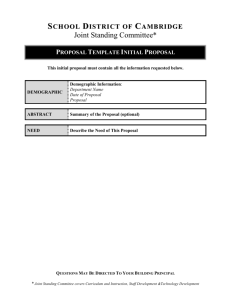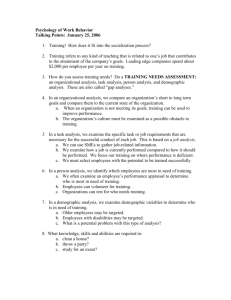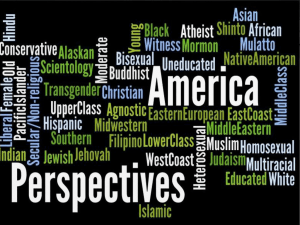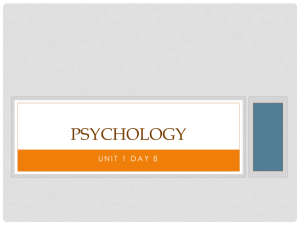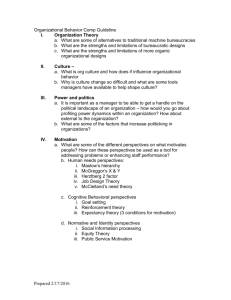Syllabus MANS 191: Century” Fall 2012
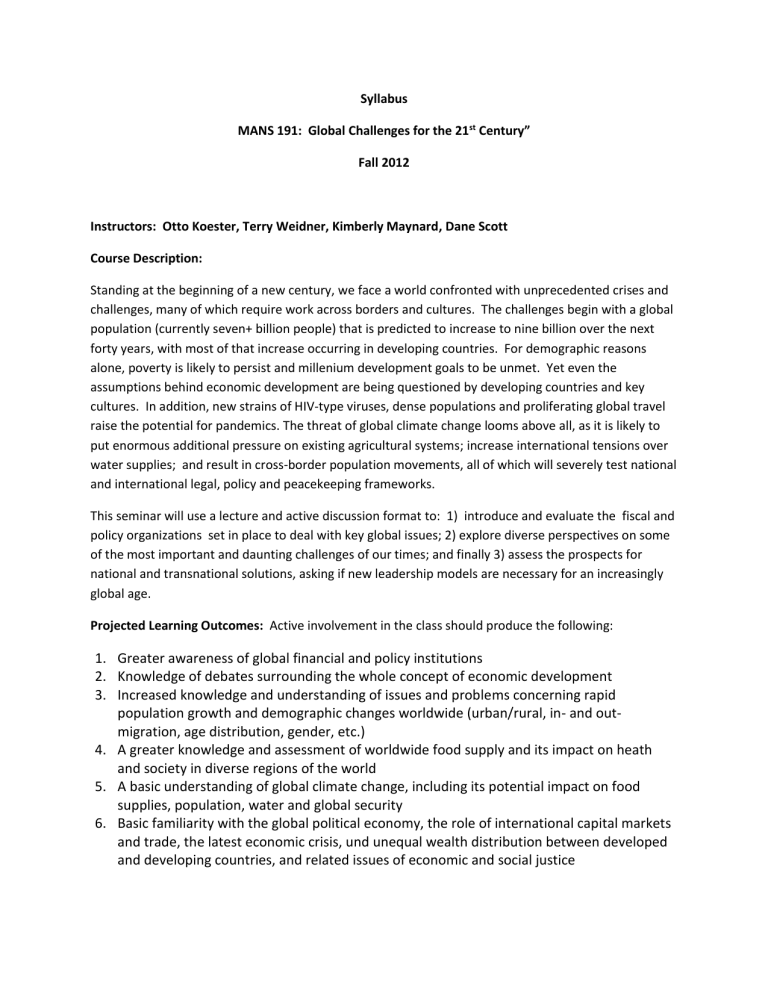
Syllabus
MANS 191: Global Challenges for the 21 st Century”
Fall 2012
Instructors: Otto Koester, Terry Weidner, Kimberly Maynard, Dane Scott
Course Description:
Standing at the beginning of a new century, we face a world confronted with unprecedented crises and challenges, many of which require work across borders and cultures. The challenges begin with a global population (currently seven+ billion people) that is predicted to increase to nine billion over the next forty years, with most of that increase occurring in developing countries. For demographic reasons alone, poverty is likely to persist and millenium development goals to be unmet. Yet even the assumptions behind economic development are being questioned by developing countries and key cultures. In addition, new strains of HIV-type viruses, dense populations and proliferating global travel raise the potential for pandemics. The threat of global climate change looms above all, as it is likely to put enormous additional pressure on existing agricultural systems; increase international tensions over water supplies; and result in cross-border population movements, all of which will severely test national and international legal, policy and peacekeeping frameworks.
This seminar will use a lecture and active discussion format to: 1) introduce and evaluate the fiscal and policy organizations set in place to deal with key global issues; 2) explore diverse perspectives on some of the most important and daunting challenges of our times; and finally 3) assess the prospects for national and transnational solutions, asking if new leadership models are necessary for an increasingly global age.
Projected Learning Outcomes: Active involvement in the class should produce the following:
1.
Greater awareness of global financial and policy institutions
2.
Knowledge of debates surrounding the whole concept of economic development
3.
Increased knowledge and understanding of issues and problems concerning rapid population growth and demographic changes worldwide (urban/rural, in- and outmigration, age distribution, gender, etc.)
4.
A greater knowledge and assessment of worldwide food supply and its impact on heath and society in diverse regions of the world
5.
A basic understanding of global climate change, including its potential impact on food supplies, population, water and global security
6.
Basic familiarity with the global political economy, the role of international capital markets and trade, the latest economic crisis, und unequal wealth distribution between developed and developing countries, and related issues of economic and social justice
7.
Introductory understanding of global and regional organizations and governance, different concepts of world order, potential sources of violent conflict and approaches to managing transitions to peace
8.
A greater understanding of and ability to critique government responses to minorities and ethnic groups, and demands for human rights
9.
A general understanding of the potential and problems related to nuclear energy as a possible replacement for fossil fuels
10.
More understanding about the true nature and consequences of war
Required Readings:
Because this class seeks to explore diverse/opposing perspectives and approaches to key global issues like poverty, development, the environment, and war, we will eschew text books in favor of the most current sources (including “classic” book chapters, full or partial government/NGO reports, “think tank” position papers, video streams, blogs, and thoughtful media treatments) from around the globe.
GRADING:
Attendance and participation in class discussion: 30%
Occasional quizzes and short in-class writing exercises: 10%
Mid-term examination (in class): 30%
Final team project (position paper mimicking an NGO or intelligence assessment of one of the key issues discussed in class, done by 4-person teams, plus in-class oral report): 30% total
Schedule of Class Topics:
Week One: Introduction: links to GLI framework, class goals, expectations, overview of significance of issues to be pursued; global Economic bodies: the IMF, World Bank and WTO
Week Two: Introduction to global governance bodies, II: The United Nations, Regional organizations, emerging global legal organizations
Week Three: Differing Perspectives on Economic Development: the developed and developing worlds
(the latter including challenges from China –the so-called “Beijing Consensus”-- and views from the
Muslim world)
Week Four: Economic aid as an instrument of Foreign policy—Two case studies: the U.S. in Afghanistan and China in Africa
Week Five: The Demographic puzzle: the impact of population growth on health, society, and policy in the developing world. Creation of 4-person teams and initial discussion of topics for final project.
Week Six: The Demographic puzzle, II: case studies—differing perspectives on the social and political consequences of the rapidly growing Hispanic population in the United States, and China’s one-child policy (moral and enduring social/policy issues)
Week Seven: Review and Mid-term Exam
Week Eight: Spring break
Week Nine: Health in the age of HIV, dense populations, and airplanes: The new threat of global pandemics; further discussion of final team projects
Week Ten: Overview: The science and challenges of climate change; climate change, food production and water as potential sources of intra-state and inter-state tension
Week Eleven: The Energy Crunch: The politics of oil; the dilemma of nuclear and other “alternative” energy sources as a replacement for carbon fuels
Week Twelve: Human rights in a global context: Differing perspectives on the question: Are there
“universal” human rights? Does the U.S. have the right to spread democracy?
Week Thirteen: Beyond “Shock and Awe:” The consequences of war; The concept of “just” war
Week Fourteen: Do we need new leadership models for a global world?
Week Fifteen: Final Team project Reports
